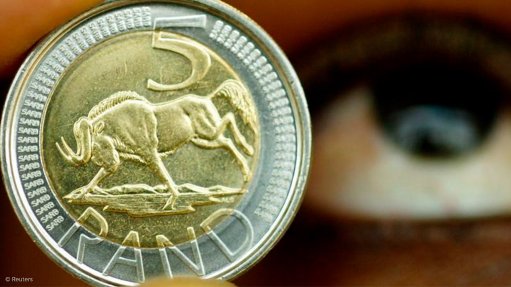Malawi hoping to attract 1 000 MW of private power investment
Malawi plans to procure a total of 1 000 MW from independent power producers (IPPs) to boost the country’s electricity generation capacity, which currently stands at 351 MW, compared with maximum demand of 400 MW.
Natural Resources, Energy and Mining Minister Bright Msaka says negotiations with IPPs are ongoing, adding: “We hope to seal power purchase agreements with the IPPs after concluding all the modalities. “With the growth of the population and industry, Malawi needs more power. But we want to make sure that we do not get power at excessive prices.”
The IPPs are expected to generate power from hydro sources, solar, biomass, liquid fuels and coal, which they will feed into the national grid.
“The solar projects will require about a year to develop, so we expect [them] to come on stream from the middle of this year to next year. Hydropower stations take longer, [as do] coal-fired plants . . . but we still expect to get all the 1 000 MW . . . in five years’ time,” says Msaka.
Malawi is grappling with intermittent power outages, which the country’s power utility, the Electricity Supply Corporation of Malawi, largely attributes to low water levels in the Shire river, where the country generates up to 98% of its electricity, owing to low rainfall over the last few years.
Joseph Kalowekamo, spokesperson for energy affairs at the Ministry of Natural Resources, Energy and Mining, comments that Malawi is determined to increase power generation capacity and diversify its sources of electricity.
Malawi’s generation capapcity of 351 MW is the lowest in Southern Africa and compares with Botswana’s 732 MW, Kenya’s 2 100 MW, Zimbabwe’s 1 300 MW, Zambia’s 2 347 MW, Tanzania’s 1 583 MW and Mozambique’s 2 075 MW.
Says Kalowekamo: “In order to catch up with the regional neighbours, Malawi needs to increase her generation capacity by a minimum of 1 000 MW between 2016 and 2020.” He adds that boosting electricity generation capacity will be key to attracting “meaningful foreign investment in mining, manufacturing, processing and other socioeconomic activities”.
He says that, economically, Malawi “is stagnating” in terms of manufacturing, processing and mining activities, as investors who could have invested and created jobs in the country have moved elsewhere because of power shortages.
He explains that the power crisis has forced some manufacturing and processing companies to move their operations to neighbouring countries.
“It is against this background that the Ministry of Natural Resources Energy and Mining is engaging IPPs and also jointly working with Escom on key projects that will increase generation capacity in the short term and stabilise power supply in the long term,” says Kalowekamo.
Among other projects, the Malawi government has initiated feasibility studies on hydropower plants on a number of rivers in the country, including the South Rukuru, the Songwe, the Dwambadzi and the Bua, in order to lessen its dependence on the Shire river.
The other power generation projects in the pipeline include a 300 MW coal-fired power plant in the country’s southern region; the upgrading of the Nkula A hydropower station, on the Shire river; and the development of a 340 MW hydropower scheme on the Songwe river, on the Tanzanian border, to be implemented jointly with the northern neighbouring country, with funding from the African Development Bank; as well as the 100 MW Kholombidzo scheme, the 230 MW Mpatamanga scheme and the 23 MW Tedzani IV scheme – all on the Shire river.
Article Enquiry
Email Article
Save Article
Feedback
To advertise email advertising@creamermedia.co.za or click here
Announcements
What's On
Subscribe to improve your user experience...
Option 1 (equivalent of R125 a month):
Receive a weekly copy of Creamer Media's Engineering News & Mining Weekly magazine
(print copy for those in South Africa and e-magazine for those outside of South Africa)
Receive daily email newsletters
Access to full search results
Access archive of magazine back copies
Access to Projects in Progress
Access to ONE Research Report of your choice in PDF format
Option 2 (equivalent of R375 a month):
All benefits from Option 1
PLUS
Access to Creamer Media's Research Channel Africa for ALL Research Reports, in PDF format, on various industrial and mining sectors
including Electricity; Water; Energy Transition; Hydrogen; Roads, Rail and Ports; Coal; Gold; Platinum; Battery Metals; etc.
Already a subscriber?
Forgotten your password?
Receive weekly copy of Creamer Media's Engineering News & Mining Weekly magazine (print copy for those in South Africa and e-magazine for those outside of South Africa)
➕
Recieve daily email newsletters
➕
Access to full search results
➕
Access archive of magazine back copies
➕
Access to Projects in Progress
➕
Access to ONE Research Report of your choice in PDF format
RESEARCH CHANNEL AFRICA
R4500 (equivalent of R375 a month)
SUBSCRIBEAll benefits from Option 1
➕
Access to Creamer Media's Research Channel Africa for ALL Research Reports on various industrial and mining sectors, in PDF format, including on:
Electricity
➕
Water
➕
Energy Transition
➕
Hydrogen
➕
Roads, Rail and Ports
➕
Coal
➕
Gold
➕
Platinum
➕
Battery Metals
➕
etc.
Receive all benefits from Option 1 or Option 2 delivered to numerous people at your company
➕
Multiple User names and Passwords for simultaneous log-ins
➕
Intranet integration access to all in your organisation


















